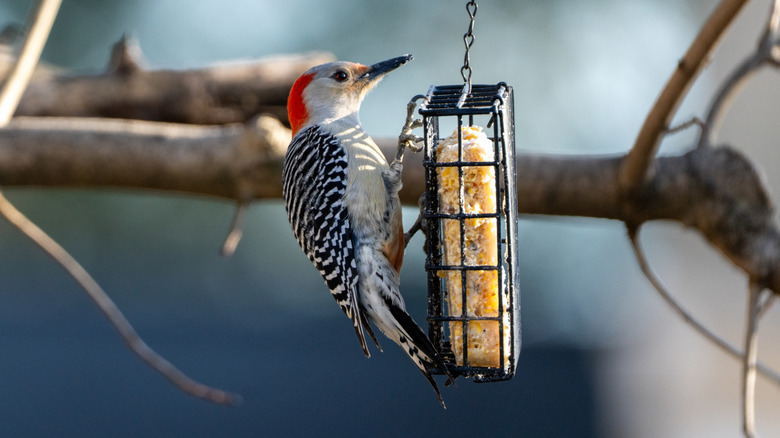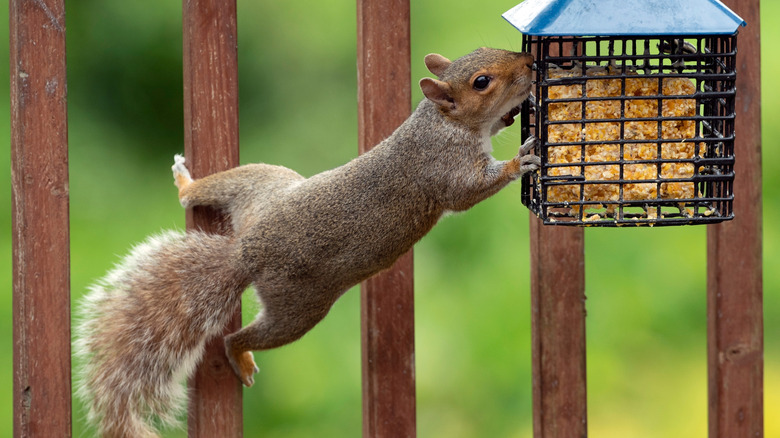Why You Might Think Twice Before Using Suet To Attract Birds To Your Yard
We may receive a commission on purchases made from links.
Feeding birds via a bird feeder or offering suet can welcome a flurry of feathered visitors. But before you put out suet to attract birds to your yard, consider an unfortunate downside: squirrels. The clever creatures enjoy suet, so you might end up attracting them as well. Squirrels have been known to raid suet, taking large chunks at once and leaving little to nothing behind. Fortunately, with the right strategies, you can keep the birds happy and fed while deterring squirrels.
Suet is often sold in blocks or balls, or sometimes as a spread for birds. It consists of animal fat from around the kidneys and loins in cows as well as sheep. A great addition to a bird's diet, it's routinely enjoyed by backyard visitors like chickadees, wrens, jays, and woodpeckers. Packed with protein and mixed with a variety of seeds, suet can entice a diverse range of bird types to turn your garden into a bird haven. It's not just tasty, either, as suet offers vital energy to birds and helps them retain their body heat during the colder months. It's especially useful in the winter when regular food sources can be more scarce. By making a few changes in how you offer suet, you can make sure that the birds always get the benefit of it and not the squirrels. Here's what you need to do.
Keeping squirrels away from your suet
Now that you know squirrels love suet, how can you stop these critters from eating it all? One option is offering suet flavored with hot pepper, which sometimes deters them. Squirrels hate the taste of hot pepper, but birds have fewer taste buds than mammals. This means birds enjoy hot peppers despite them containing capsaicin, the ingredient that gives peppers their heat. If you consider going this route, you can buy a premade version like Wild Delight 3 Pack of Sizzle N Heat Spicy Suet. Alternatively, if you're making your own suet, add in a tablespoon of red pepper flakes. Of course, if the squirrel is hungry enough, it's likely they'll still eat your suet, so it's best to also use physical barriers against the pests as well.
Squirrels are particularly smart with problem-solving skills and impressive jumping abilities, often able to clear 10 feet from one object to another. In addition to using spicy suet, consider a squirrel-proof suet feeder, such as the Kingsyard Squirrel Proof Suet Feeder. Squirrel-proof feeders feature metal bars that birds can easily access but squirrels can't chew through. You can also secure your suet with a baffle or squirrel guard. Typically made of plastic or metal, a baffle is a cone-shaped structure that fits on your feeder pole. It stops squirrels from climbing up and getting access to the suet. One of the best ways of keeping squirrels out of your bird feeder, the baffle's slippery surface makes it hard for squirrels to grip, forcing them to slide down empty-handed. Also ensure the feeder isn't near trees that the squirrel could jump from to access the suet.

